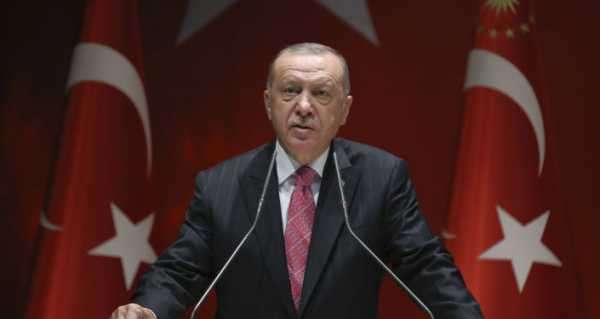
Tensions between Turkey and Greece rapidly escalated over the last month after Ankara announced the continuation of its fossil fuel extraction survey in disputed eastern Mediterranean waters. Its attempts to find energy resources in the region are vehemently opposed by Athens, with many EU countries also condemning Turkish actions in the sphere.
Turkish President Recep Tayyip Erdogan has cautioned Athens and Paris against trying to stop Turkey from continuing its seismic survey activities to locate and identify sources of oil and gas in the eastern Mediterranean, stressing that Ankara is “determined to pay any price” to defend its national interests. The president alleged that the people of Greece and of France are not ready to pay the heavy price for the actions of their governments.
Erdogan claimed that Ankara whose “patience, determination, means and courage can be tested”. He added that “threats” to the country’s “rights and interests” in the Mediterranean and Aegean maritime regions are among Turkey’s main concerns, alongside a fight against terrorism.

Turkish seismic research vessel Oruc Reis is seen in Istanbul, Turkey, August 22, 2019. Picture taken August 22, 2019
The interests the president referred to are Turkey’s plans to survey a part of the offshore waters of Cyprus in a search for oil and gas, which it deems its exclusive economic zone, based on an agreement with the unrecognised Turkish-held Republic of Northern Cyprus. Ankara earlier sent the seismic survey vessel Oruç Reis to research the waters for possible oil and gas resources.
These attempts, however, are strongly opposed by Athens, which, alongside the EU, does not recognise Turkey’s territorial claims. Athens has mobilised its military following Turkey’s deployment of the Oruç Reis and a warship escort. Greece enjoys broad support among its EU partners, including Germany and France, who condemn Turkey’s actions and call on both sides to engage in dialogue to ease tensions and resolve the issue peacefully.
Sourse: sputniknews.com






